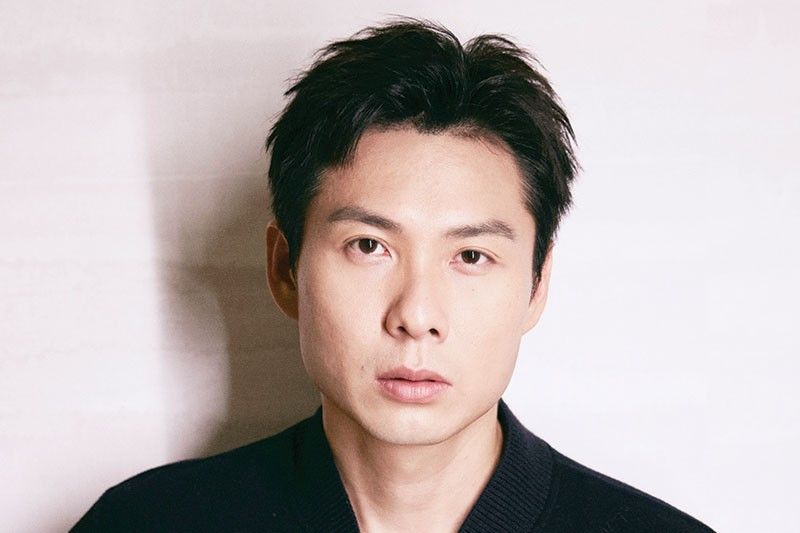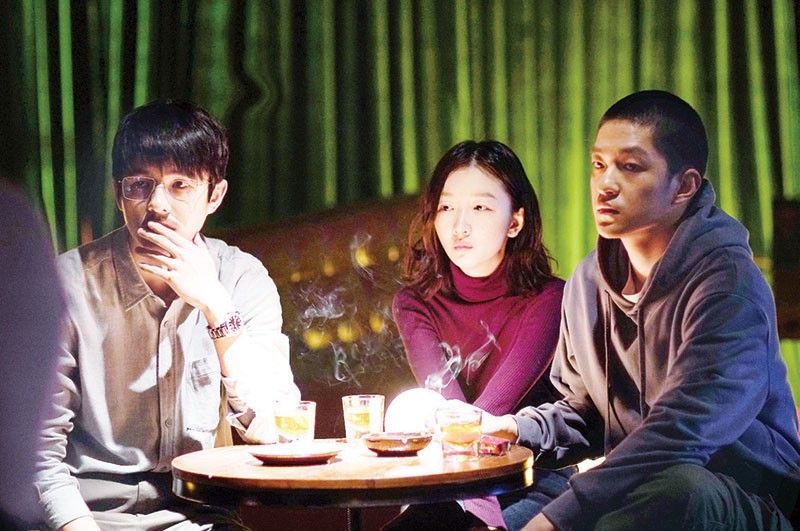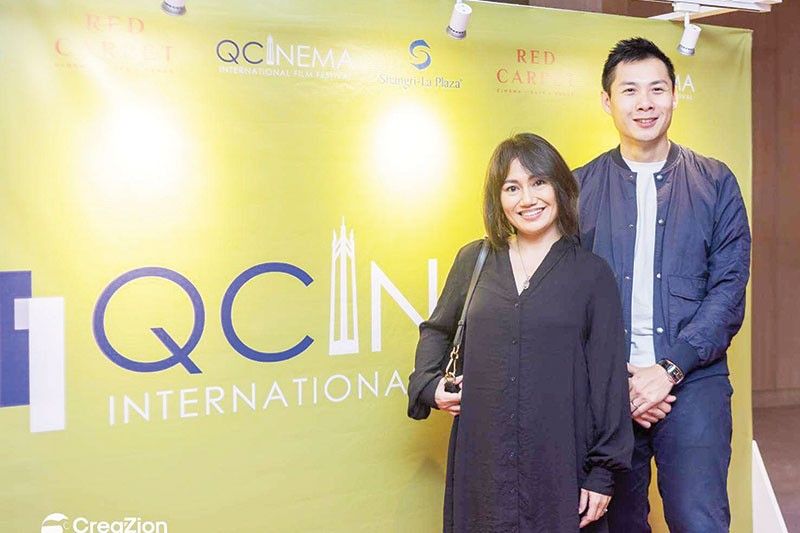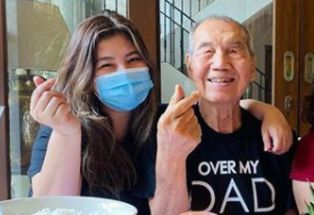Pandemic-induced existential crisis inspires Anthony Chen’s love story The Breaking Ice

Singapore’s 2024 Oscars submission, Anthony Chen’s coming-of-age romance The Breaking Ice, is now showing in Philippine cinemas.
Ten years after he brought his directorial debut — the Cannes Camera d’Or-winning Ilo Ilo about a young Singaporean boy’s close bond with his Filipino nanny — to the country, the Singaporean filmmaker is reconnecting with his Filipino audiences via his latest work, which is distributed locally by CreaZion Studios.
The Breaking Ice also served as the closing film of the QCinema film festival held last month.

Anthony, who recently flew into Manila for a round of press interviews, told The Philippine STAR how an existential crisis during the pandemic brought about this film about three people, in their 20s, meeting one cold, wintry season in Yanji, a small city on China’s northern border.
Starring actress Zhou Dongyu alongside actors Liu Haoran, and Qu Chuxiao, the movie tells the story of a young man visiting from Shanghai to attend a friend’s wedding in Yanji. While there, he encounters a charming female tour guide, starts developing feelings for her, and gets caught up in a love triangle with an equally likable but frustrated chef.
“It’s also about three young people in their 20s, feeling lost and stuck in their lives… three strangers that bond over a short few days in the winter and how they find warmth and solace and comfort in one another,” he said.
But more than about finding love and comfort with someone else, Anthony added, the film in the end is also about “learning how to get unstuck in life and learning how to love yourself.”
The film brought Anthony back to Cannes film fest this year, exactly 10 years after Ilo Ilo’s own Cannes premiere. However, this is a definitive departure from the 39-year-old’s previous works. Ilo Ilo and Wet Season were very “social realistic” and “naturalistic” but this one, he noted, is “atmospheric” and “goes into magic realism at times.”
As mentioned, The Breaking Ice was specifically brought about by an existential crisis “triggered” when movie productions came to a halt and the industry became one of the hardest hit over the pandemic.

“I really thought, ‘This is probably the beginning of the end, you know, for my industry.’ For two years, I was just looking at audiences and they were just cooped up in their homes. They were just watching TikTok on their smartphones and just turning to streaming. And of course, I was pretty certain that when cinemas reopened, people were going to go back to watch the big blockbusters,” Anthony said.
“So, I had this real existential crisis. I wondered if I would still exist as a filmmaker. Because whether you watch Ilo Ilo or Wet Season, or whether you watch my English film Drift or even this film The Breaking Ice, I’m a quiet filmmaker. I’m a gentle filmmaker. I’m a subtle filmmaker. I’m a restrained filmmaker. I don’t make big sentimental melodramas. I don’t make, like, action blockbusters. I’m not a Marvel filmmaker. Will people still be willing to go to the cinemas and have the patience to watch my films?
“So, I was very skeptical, which is why I had a real crisis. I think I was quite depressed and the worst thing was, I was figuring out what else it could do in life.”
For someone who has been making movies since he was 17, Anthony mused that there was “nothing else I know to do, you know, apart from maybe cooking because I’m a good cook. I was thinking, oh maybe I should train as a chef and open my own restaurant, because at least one thing that taught me during the pandemic is even when the world is locked down, even when people stay at home, the only thing that they think about is food.”
And the news, or at least in his case, he was reading a lot of news articles during the pandemic and they got him thinking on what to do for his next film project.
“There were many articles about young people emerging out of Asia, Britain (I was living in the UK at that time), Europe, America, like this generation, Generation Z. And the issues with mental health and with anxiety, like them feeling lost and stuck in their lives, sort of suspended, and their distress and their sort of disappointment with the establishment, the government, employers, their parents, their previous generation, I felt like everyone was struggling in different ways.”
He continued, “All these young people, there was, like, a collective melancholy. There’s a collective sense of what am I going to do in life? You know, where am I going from here? And I was going through that as well. I was connecting very deeply with that, which is why I decided to make this film.”
Anthony was able to write the script during a 21-day quarantine in China. “It was quite full on, but at the same time interesting because the pandemic can be quite productive, you know?” he shared.
“Between my first film Ilo Ilo and second film Wet Season — coincidentally, Wet Season was also the closing film at QCinema in 2019 — it was six years. But last year, in a span of six months, I shot two films. I shot one film in Europe. I shot one film in China, The Breaking Ice, and this English language film called Drift.
“I’ve never been so productive in my life! But it was also because of the pent-up energy and frustration from the pandemic that just fired me into making stuff. I felt like I was making films like they were the last films I might ever make in my life.”
That sense of urgency is because of what Anthony simply learned during the pandemic. “If there’s one thing that the pandemic taught me is that life is too short. And if life is so short, I’m gonna make more films.”
Meanwhile, as mentioned, The Breaking Ice is Singapore’s official submission to the 2024 Oscars. It’s Anthony’s third film to be submitted for the Best International Feature category after Ilo Ilo and Wet Season. He said he has no expectations. Comparing how he was as director then and now, “I’ve matured a lot in the past 10 years. I think in the past you were like a little boy in a candy shop when you went to the Cannes with your first feature film, right? And everything was so exciting, flying around, receiving awards, being on the red carpet.
“But you’ve come to a point where I’m more interested in just making the work and more interested in people connecting with the work and people talking about the work more than talking about whether the film is going to win an award or be nominated for how many awards. I think these days I don’t care for all that anymore.”
Nevertheless, Anthony acknowledged that being in the Oscars race can open possibilities of more people watching his film amid these post-pandemic times where “box-office is struggling everywhere.”
“I think in these harsh times where it’s so hard to get people to go into cinemas, it’s really heartening that an arthouse film from Cannes by a Singaporean director and in Mandarin is being screened in cinemas as far out as the Philippines,” he said,
“That for me is more important than how many awards the film is going to get or whether it’s going to get the Oscar nomination eventually because, in the end, I always believe as a filmmaker, you make films because you’ve got stories to tell, you’ve got something to say. But that dialogue is not with yourself. The dialogue is with the audience. And having that emotional connection for me, I value that so much more than anything else.”
- Latest
- Trending





























